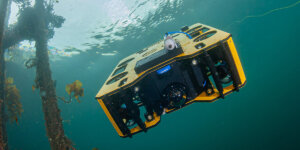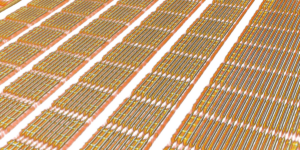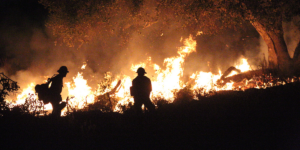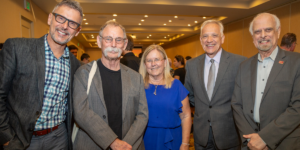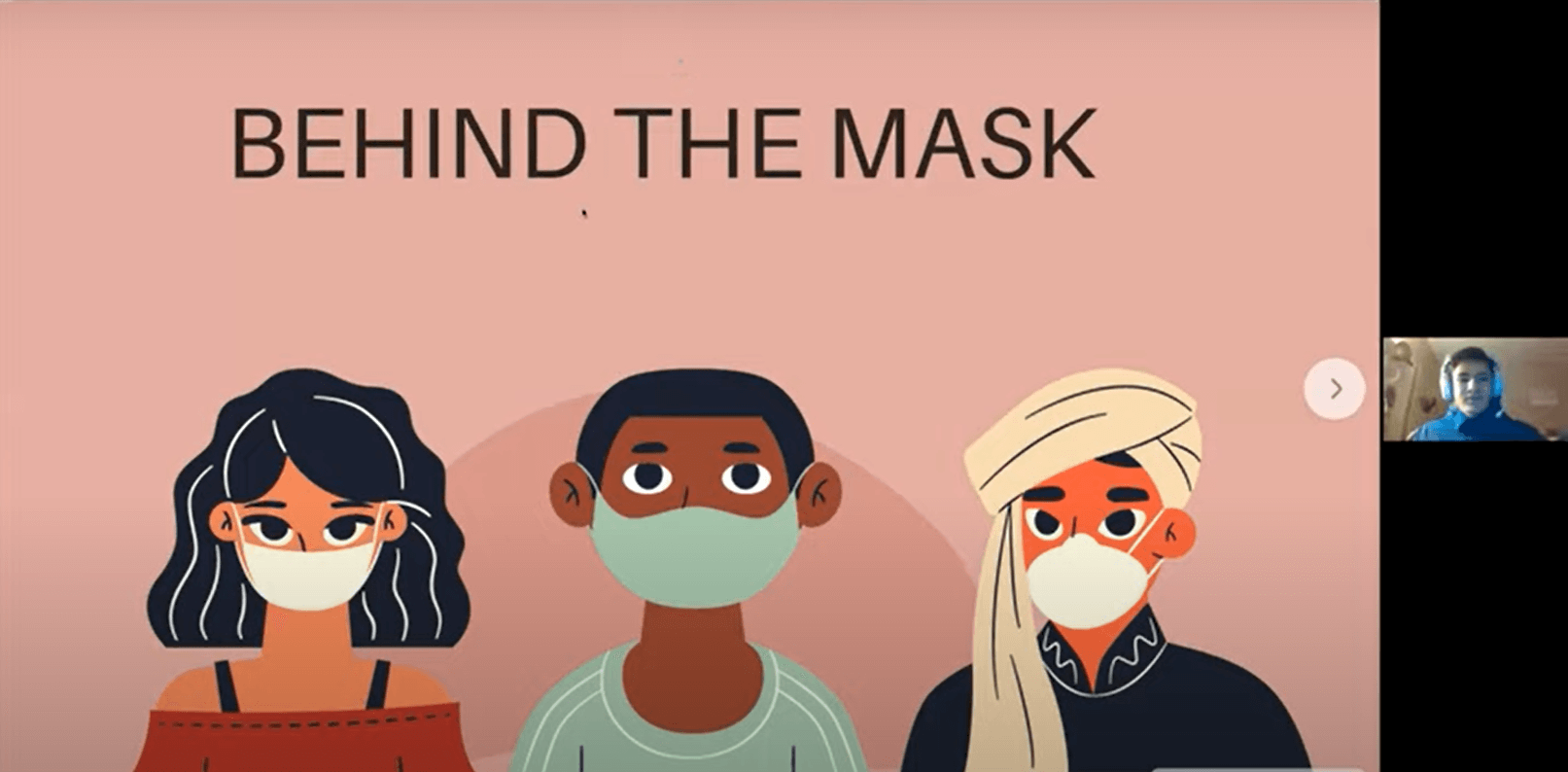
Bootcamp participant Sebastian Schur presents his group’s project, “Behind the Mask,” a comfortable mask that displays a QR code leading to a website that fights misinformation
Due to the COVID-19 pandemic, high-schoolers throughout the United States have found their camps, internships, and jobs cancelled this summer. This meant that a serious portion of the population with initiative, talent, and drive were forced to stay at home on their couches. Inspired by the National Academy of Engineering’s Call to Action, Dean Yannis C. Yortsos pushed for a program that could harness that talent for a good cause.
The Viterbi School of Engineering has a longstanding history of bootcamps for high school students, which give the brightest young minds a taste of what it’s like to study engineering. These programs usually involve a few weeks of on-campus learning, researching, and workshopping creative technologies. The realities of a pandemic-struck world made a program like that impossible this year. But at USC Viterbi, the show must not only go on, it must be even better than before. Thus, this year’s first-ever virtual bootcamp was also streamlined to pinpoint and tackle the most pressing issues of today.
The result was the USC Technology Innovation Bootcamp, which hosted high schoolers from across the country in a three week long scramble to design a product to help in COVID-19 relief efforts.
“The goals of this program are twofold,” says Alice Liu, director of the program. “First is to inspire and plant an early innovator’s mindset in the next generation of engineers, and second is to harness the power of this generation and give them a platform to create solutions to combat COVID-19.”
The students chosen for the program attended bi-weekly classes focused on honing their design thinking skills for a problem as wide-ranging as COVID-19. They were sorted into “pods,” small groups which under the guidance of a student leader, which work together to ideate. These student leaders were National Academy of Engineering Grand Challenge Scholars, from both USC and outside, who have proven exemplary skill at innovating for global challenges through their own projects.
“Each student is so unique and intelligent in their own way, and I love to try to empower them to believe that they can be the change they want to see in their communities,” says Celeste Goodwin, one of the 23 Grand Challenge Scholars participating in the program. “People in academia and engineering underestimate young peoples’ abilities to innovate and create solutions, some high school students are even more creative than professionals!”
Goodwin’s pod, who call themselves the Isolation Innovators, prototyped a social media network that emulates in-person interaction. “I was amazed by how creative the students were and how great they were at working within a team,” says Goodwin, a 2020 graduate from USC Viterbi. “This made me so excited about the future of engineering: kids who grew up on technology.”
In addition to leading the pods, the Grand Challenge Scholars taught the students tangible engineering skills, such as how to use design software, to assist in making a prototype of their product. They also launched an Instagram account called “enGenZeer”, with the aim of giving future engineers a glimpse into the life of engineers at college and beyond.

Grand Challenge Scholar Chloe Kuo teaches an introduction to Python class
The Technology Innovation Bootcamp, which ran from July 13–31, 2020, featured a diverse group of 110 students. 53% of the cohort were women or non-binary, and 39% come from underrepresented minority backgrounds. One of the goals of the program was to recognize the diversity of thought and of backgrounds within engineering and show students that a career in engineering is possible no matter what your experiences, methods, or interests may be.
“I hope every one of our students come away from the program realizing, ‘I can be an engineer, I can be an inventor. I can identify an unmet need that no one has ever noticed before and develop something that is of value to the world,’” says Liu, who is also the Assistant Director for the Office of Technology Innovation and Entrepreneurship.
By the end of the program, participants were expected to formulate a complete prototype for their product. The students displayed their final efforts at a pitch showcase on July 31st, where they were tasked with explaining in three minutes how implementing their product would help the COVID-19 crisis.
Dean Yortsos jumpstarted the meeting with a speech stressing the importance of innovation in a pandemic-stricken world, and connected the program to Viterbi’s goal to engineer a better world for all of humanity.
“We believe that engineering is the enabling discipline of our times,” said Dean Yortsos, “but we can only succeed when engineering becomes more human-centric.”
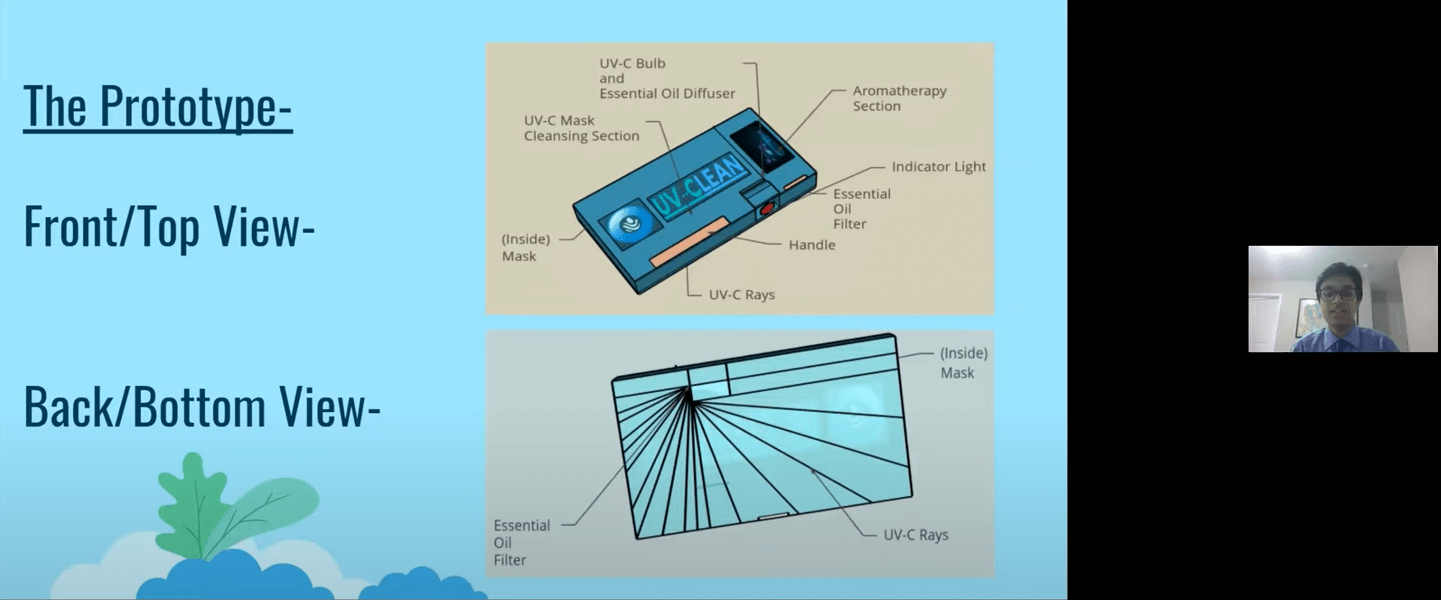
16 year-old participant Mohak Agarwalla shows off the prototype of his group’s product, “UV-CLEAN,” a device that sanitizes masks using ultraviolet light.
The projects ranged from a sustainable face mask aimed to limit waste, to a website with engaging board games to combate quarantine boredom. Their first ever taste of using engineering to combat a global challenge was viewed by an audience across the country.
“Engineering is perfect to combat an issue like this,” says Liu. “Engineers are problem solvers, and we’re talking about a pandemic. There are a lot of problems to solve.”
View both parts of the Technology Innovation Bootcamp final pitch showcase here and here.
Published on July 30th, 2020
Last updated on August 7th, 2020




